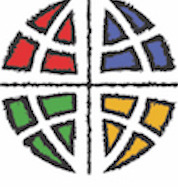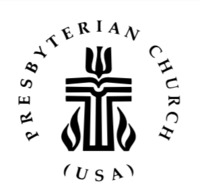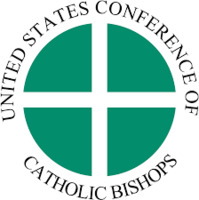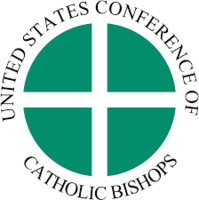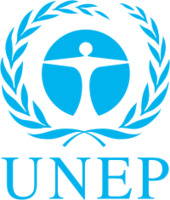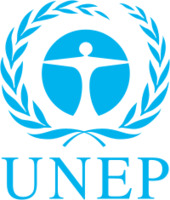Search
103 items
-
San Diego Creation Care Team Success Stories
Catholic Climate Covenant has created two short videos to discuss how different churches in the San Diego diocese in California have worked to be better stewards of God’s creation. The parish of Our Mother of Confidence in San Diego, California, has taken action to reduce water and energy usage while the Saint James Parish and Academy in Solana Beach, California, has implemented environmentally conscious projects and initiatives in their community. -
God’s Gift of Water
Creation Justice Ministries encourages Christian communities to consider water as a sacred gift from God that connects and sustains all life. They have created a free Christian education resource on water that includes liturgical resources, sermon starters, and ideas to take action. -
Leadership Meeting Guide - Protecting Your Nest
This meeting guide from Evangelical Environmental Network MOMS offers ways to live in a simple, toxic free home. It focuses on ways to protect children from fossil fuels and consumption of chemicals that are known to cause diseases. Suggestions for household improvements in this area include: reading labels, dumping processed foods, using homemade cleaning products, and more. -
Columbus Catholic School becomes Designated GreenSpot School
The GreenSpot School designation indicates that a school has taken initiatives to educate their students and staff about sustainability, water issues, conserving energy, reducing waste, and green transportation. St. Mary School Catholic school has become the first in Columbus to earn this designation. They have implemented a recycling program, local garden, and composting, which qualified them to become a GreenSpot School. They have created a short video of students discussing their engagement and staff discussing the impact of becoming a GreenSpot School. -
Earth Day statement from ELCA presiding bishop
The Reverend Elizabeth A. Eaton, Presiding Bishop of the Evangelical Lutheran Church in America (ELCA), issued an Earth Day statement on behalf of the ELCA. A salient excerpt from the statement is shown below:
"The effects of the warming climate are felt in nearly every corner of the globe. These include increased migration, food insecurity due to changing agricultural landscapes, national security issues and health problems. As bad as it is for all creation, the most vulnerable people around the world are suffering the most. Yet they have contributed the least and, as noted in the United Nation's 2030 Agenda for Sustainable Development,[iii] are ill equipped to adapt to or mitigate the effects of a changing climate to build resilient communities." -
Climate Change
The Presbyterian Church has put forth this video on care for creation, emphasizing that Christ has called us to go out into the world to care for creation and our fellow humans, especially the poor. The Union of Concerned Scientists has identified food, transportation, and energy as three key areas of focus to help stem climate change Congregations can help by implementing energy saving techniques, participate in recycling and composting waste, teaching children to grow food, and incorporating salient creation care concepts within educational settings. -
Water
The Presbyterian Church (U.S.A.) Presbyterian Mission website provides some helpful resources on critical water issues, with a special focus on the problems that result from fracking. Included are additional resources to learn more about fracking. With regard to community specific issues, they provide suggestions to encourage residents to investigate, educate, and act to take appropriate measures to alleviate the problems. -
Report and Recommendations on Limited Water Resources and Takings
The 216th General Assembly of the Presbyterian Church U.S.A. put forth this report on recommendations regarding critical water issues. The first half discusses water with regard to ethical considerations and sustainability. The second part provides an action/study guide that is designed for individual use as well as educational purposes. -
Hazardous Waste, Race, and the Environment
This statement was approved by the 207th General Assembly Presbyterian Church (U.S.A.), 1995. The predominant theme focuses on the impact that hazardous waste has on individuals who are suffering from poverty and minority groups. The final section provides suggestions for taking action. -
Restoring Creation for Ecology and Justice
This report was adopted by the 202nd General Assembly (1990) Presbyterian Church (U.S.A.). Their Committee on Social Witness Policy urges the assembly to adopt specified policies within the document. The report covers of multitude of critical environmental issues, with sound policy recommendations and actions that congregations can take to support the myriad of sustainability issues. -
USCCB President's Refelction and Prayer During Coronavirus
The president of the U.S. Conference of Catholic Bishops Archbishop José H. Gomez offers his statement regarding COVID-19 to bring comfort to those affected by the virus and to pray for recovery. He offers prayer to healthcare workers and civic leaders helping fight against the virus and calls for solidarity among the congregation.
He leads a prayer to the Virgin Guadalupe for protection and healing, and for compassion and patience in the church.
-
Catholic Response to Outbreak of Coronavirus
Chairman of the U.S. Conference of Catholic Bishops' Committee on International Justice and Peace and Bishop David J. Mallot, Sean Callahan the president of Catholic Relief Services, and Sr. Mary Haddad, RSM, the president of the Catholic Health Association of the United States offer a statement in the midst of the Coronavirus outbreak. The statement applauds healthcare workers and calls on governing bodies to work together to combat the virus. The statement also recognizes the U.S. for sending 17 tons of medical supplies to China, an example of how compassion and teamwork is needed at this time. A part of his address contains the following:
“The Catholic Church in the United States stands in solidarity with those affected by the coronavirus and their families, health workers who are valiantly trying to diagnose and treat patients, and those under quarantine awaiting results of their screening for the virus. We offer our prayers for healing and support those organizations, both domestic and international, working to provide medical supplies and assistance to address this serious risk to public health." -
Faith, science and technology
The World Council of Churches (WCC) discusses the intersection of faith, science, and technology and what the future might hold given the current trajectory of new technological developments. The concluding paragraph provides some summary statements regarding this issue:
"The work done so far on genetic engineering has helped to identify also other challenging technological developments, especially in the field of nano-scale technologies that operates at the scale of atoms and molecules. According to the U.S. National Science Foundation, the global market for nano-scale technologies will exceed $1 trillion within six years, yet most governments and intergovernmental agencies have hardly heard or thought of nano-technology. One of the Ecumenical Conversations will focus on the challenges by new technologies to the churches’ witness to the sanctity of life. The question will be if the WCC can facilitate exchange among the churches on these issues in order to broaden the basis for common witness and action. Is it true that time has come for a new emphasis on the concerns posed by science and technology?" -
Water
The World Council of Churches discuss the issues of access to fresh water in various parts of the world and its impact on the survival of many communities, as well as biodiversity in general. The following excerpt provides more detailed information on this environmental injustice:
"The survival of 1.2 billion people is currently in jeopardy due to lack of adequate water and sanitation. For the same reason, the lives of 6,000 children are lost every day. For those struggling with HIV/AIDS, poor or no water is yet another barrier to overcome.
In today’s world unequal access to water causes conflicts between and among people, communities, regions and nations. These conflicts exist in areas where there is a lack of water or where the main part of the water resource is polluted. Very often in these situations the poorest people bear the heaviest burden." -
A Prayer for Protection in Time of Pandemic
A prayer for those who are sick, vulnerable, and/or have passed away due to illness, to Mother Mary and Son Jesus; Adapted from the prayer of Pope Francis, provided by the Knights of Columbus. -
Coronavirus, Faith Leaders, and Sustainable Development
An event organized by the United Nations Environment Progamme and the Swedish International Development Cooperation Agency led a digital conference to discuss innovation to combat the environmental crisis in light of the COVID-19. The Faith for Earth Initiative calls for interfaith collaboration to combat environment problems. In the midst of a global crisis, the UN encourages this time to be used for innovation and educational progression. This quote from Iyad Abumoghi summarizes the mission:
“'The coronavirus pandemic is focusing hearts and minds, says the director of Faith for Earth, Iyad Abumoghli. “Faith for Earth is mobilizing youth, the leaders of faith-based organizations, as well as scientists and theologians to work together for innovative change to speed up sustainable development.'” -
Interfaith Response to COVID-19
The United Nations Environment Programme compiled a list of Interfaith responses to the outbreak of COVID-19, including statements from the Berkley Center, Oxford, and the World Evangelical Alliance. The UN recognizes faith organizations as leaders in navigating the impacts of COVID-19 and made this list to recognize these emerging responses. -
Wanted: Innovative Farmers to Help Slow Algal Bloom on Lake Erie
The Christian Science Monitor has written an article discussing how agricultural nutrients in the Maumee River, Lake Erie’s biggest source of pollution, are reaching record proportions. Most nutrient pollution is caused by large storms, and with climate change, these storms are becoming increasingly more common. The USDA reports that farmers are making headway toward reducing nutrient pollution on a voluntary basis, but many researchers say that these efforts are not sufficient. A recent report suggests additional outreach, an increased focus of conservation dollars, and mandated soil testing.
Wetland restoration – bringing back bits of the Black Swamp— can play a pivotal role in clearing algal bloom in Lake Erie. The Black Swamp Conservancy is currently working on turning 60 acres back into swamp in northwestern Ohio. William Mitsch, a retired Ohio State University professor and wetlands expert, hopes to eventually restore a tenth of the Black Swamp (about 100,000 acres) to provide a substantial cleaning of Lake Erie. -
Cleveland's St. Casimir Church Implements Green Infrastructure Practices
St. Casimir Church of the Cleveland Catholic Diocese wins the Northeast Ohio Regional Sewer District's Green Infrastructure Grant! The church will be implementing permeable pavers, and rain water basins with the grant. This effort helps give stormwater new life and redirect water pollution. St. Casimir's expresses gratitude for their community's support. Read more at the link below. -
The Importance of Water to Faith Communities, and How to Conserve it!
The Ohio Interfaith Power and Light provides information on the spiritual importance of water, along with a teaching activity for the topic. The attached also includes tips on how to help your congregation conserve water. -
Saving Buffalo Reef
This 11-minute video, by the Great Lakes Indian Fish & Wildlife Commission (GLIFWC), informs the viewer of the natural, cultural, and economic importance of Buffalo Reef. This reef is located off the Keweenaw Peninsula, Michigan, in Lake Superior. Buffalo Reef is currently under ecological distress due to local mining activities. Current Tribal, State, Federal, and Academic efforts are underway to help restore this significant environmental feature, as documented in this video. -
Engaged Organizations: Scaling Up Nutrition
Scaling Up Nutrition discuss their vision and goals on their website:
"Since 2010, the SUN Movement has inspired a new way of working collaboratively to end malnutrition, in all its forms. With the governments of SUN Countries in the lead, it unites people—from civil society, the United Nations, donors, businesses and researchers—in a collective effort to improve nutrition. The SUN Movement Strategy and Roadmap (2016-2020) has helped illuminate the importance of nutrition as a universal agenda – and one which is integral to achieving the promise of the Sustainable Development Goals (SDGs).
To realise the vision of a world without hunger and malnutrition, the SUN Movement Principles of Engagement guide actors as they work in a multi-sectoral and multi-stakeholder space to effectively working together to end malnutrition, in all its forms. These principles ensure that the Movement is flexible while maintaining a common purpose and mutual accountability." -
Engaged Organizations: 1,000 Days
1,000 Days non-profit organization for women and children discuss the work that they do on their website:
"1,000 Days works to win support for investments in the nutrition and well-being of mothers, babies and toddlers in the U.S. and around the world. We make the case to policymakers, global leaders and those who influence them that brighter futures begin with ensuring mothers and children everywhere have a thriving first 1,000 days.
From advocating for evidence-based dietary guidelines for pregnant women and young children to providing parents with educational resources and content on baby and toddler feeding, 1,000 Days is committed to nourishing healthy beginnings. " -
Bloomberg Business Posts Infographic to Show “What’s Really Warming the World?”
Occasionally, an outstanding graphic emerges to help us understand some of the complexities of climate science, such as this recent series of graphs published by Bloomberg Business. If you have wondered how all the various factors and forcings involved in global warming interact, these infographics based on data from NASA’s Goddard Institute for Space Studies are very helpful. -
Muslims and Water Conservation
The United Nations recognizes World Water Day on March 22. The Muslim community is taking this message to heart with discussions of water conservation. The following excerpt provides a brief summary of the Muslim khutbah with regard to the topic of water scarcity:
"The purpose of today’s khutbah is to remind us that the conservation of water and more broadly environmental consciousness should be an integral part of what it means to be a conscientious Muslim. An environmentally conscious Muslim is someone who lives in reverence and harmony with nature and uses water and all other natural resources frugally and sparingly."





